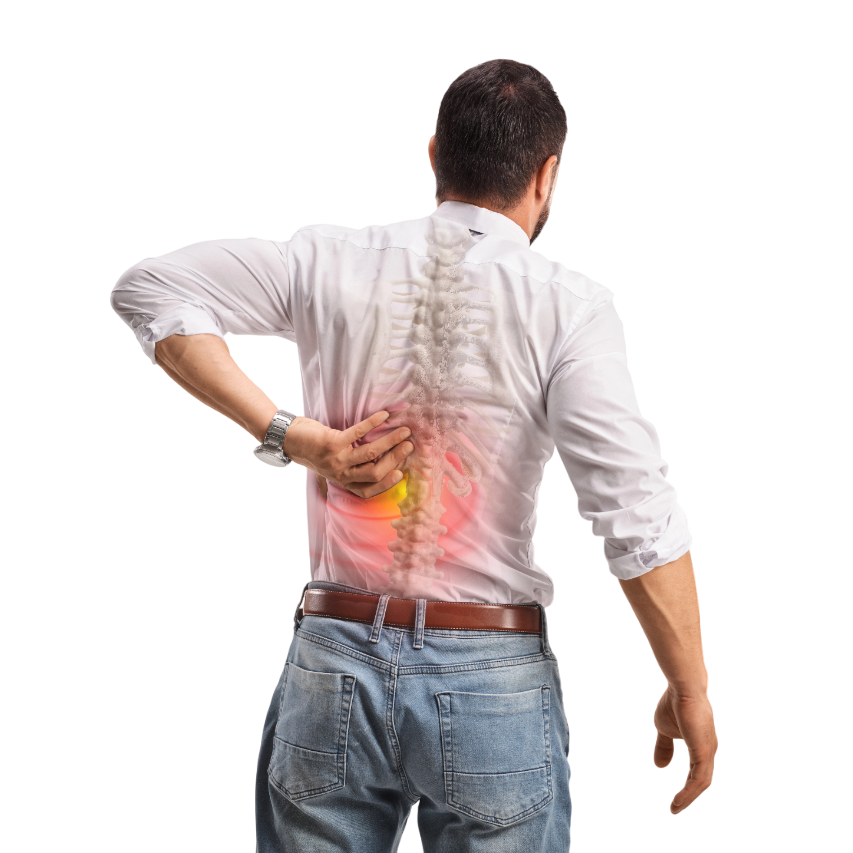Best Chiropractor For Herniated Disk In Jacksonville Beach: Top-rated chiropractor specializing in slipped disc treatment in Jacksonville Beach
At SpineWell Disc and Joint Centers in Jacksonville Beach, we specialize in providing comprehensive care for individuals experiencing issues related to herniated discs. Our team of skilled professionals is dedicated to helping patients alleviate pain and discomfort associated with this condition. Whether you are seeking relief from back pain, numbness, or tingling sensations, our clinic offers a range of effective treatment options tailored to your specific needs.
Understanding Herniated Discs and Their Symptoms
A herniated disc, also known as a slipped or ruptured disc, occurs when the soft inner core of the disc protrudes through the tough outer layer. This can result in compression of nearby nerves, leading to a variety of symptoms such as:
- Sharp or shooting pain in the affected area
- Numbness or tingling in the extremities
- Muscle weakness in the arms or legs
It is essential to recognize these symptoms early on to prevent further complications and address the underlying issue promptly. Diagnosis typically involves a physical examination, medical history review, and imaging tests such as MRI or CT scans. Treatment options range from conservative approaches like physical therapy and medication to more invasive procedures like epidural steroid injections or surgery in severe cases.
1400 Marsh Landing Pkwy unit 107, Jacksonville, FL 32250, United States 7J42+27 Jacksonville Beach, Florida, USA
Effective Chiropractic Treatments for Herniated Discs
When it comes to addressing herniated discs, chiropractic care can offer a non-invasive and holistic approach to relieve pain and promote healing. Chiropractors focus on spinal adjustments, manual therapy, and specialized exercises to target the affected area and improve overall spinal health.
- Chiropractic adjustments: Also known as spinal manipulation, these targeted movements aim to realign the spine, reduce pressure on the nerves, and alleviate pain associated with herniated discs.
- Manual therapy techniques: Chiropractors may employ soft tissue massage, stretching, or trigger point therapy to help relax muscles, improve flexibility, and enhance blood flow to the affected area.
- Specialized exercises: Tailored exercise programs can strengthen the muscles supporting the spine, improve posture, and prevent future disc issues.
Chiropractic care for herniated discs is often complemented by lifestyle recommendations, such as ergonomic adjustments, nutritional guidance, and stress management techniques. By taking a comprehensive approach to spinal health, chiropractors aim to not only address the immediate symptoms but also promote long-term wellness and prevent recurring issues.
- Pros of chiropractic care:
- Non-invasive and drug-free treatment
- Focused on addressing the root cause of pain
- Customized treatment plans based on individual needs
- Cons of chiropractic care:
- May require multiple sessions for optimal results
- Effectiveness can vary depending on the severity of the herniated disc
- Not suitable for certain medical conditions or individuals
Benefits of SpineWell Disc and Joint Centers
When seeking relief for spinal issues, turning to SpineWell Disc and Joint Centers can provide a multitude of advantages:
- Comprehensive Approach: SpineWell takes a holistic view, addressing not just the symptoms but also the underlying causes of spinal problems.
- State-of-the-Art Technology: The centers utilize cutting-edge equipment and techniques to ensure accurate diagnosis and effective treatment.
- Personalized Care: Each patient receives individualized attention, with tailored treatment plans to suit their specific needs.
Moreover, SpineWell’s team of experienced professionals is dedicated to staying abreast of the latest developments in spinal care, ensuring that patients benefit from the most advanced treatments available. By focusing on education and prevention, SpineWell aims to empower patients to take control of their spinal health and overall well-being.
The Holistic Approach to Healing Herniated Discs
When addressing a herniated disc, it is crucial to consider a holistic approach that encompasses various aspects of healing and recovery. By focusing on the interconnectedness of the body’s systems, individuals can achieve better outcomes in managing their condition.
- **Nutrition**: Consuming anti-inflammatory foods such as leafy greens, berries, and fatty fish can help reduce inflammation around the affected area.
- **Physical Therapy**: Engaging in targeted exercises and stretches can improve flexibility, strengthen the core muscles, and alleviate pressure on the spine.
- **Mind-Body Techniques**: Practices like yoga, meditation, and deep breathing can promote relaxation, reduce stress, and enhance overall well-being.
Furthermore, incorporating alternative therapies like acupuncture, chiropractic care, and massage therapy can provide additional benefits in relieving pain and improving mobility.
- **Pros**:
- Addresses underlying issues
- Promotes overall wellness
- Minimizes reliance on medications
- **Cons**:
- May require time and commitment
- Effectiveness varies among individuals
- Cost implications depending on insurance coverage
The Importance of Personalized Care Plans for Patients with Herniated Discs
When it comes to treating herniated discs, personalized care plans play a crucial role in ensuring the best outcomes for patients. Tailoring treatment strategies to meet the specific needs of each individual can lead to more effective pain management and faster recovery times. Here are some key points to consider when developing personalized care plans for herniated disc patients:
- Customized Treatment Approaches: By taking into account the unique characteristics of each patient’s condition, healthcare providers can design treatment plans that address their specific needs and goals.
- Individualized Rehabilitation Programs: Physical therapy and exercise regimens tailored to the patient’s abilities and limitations can help strengthen the muscles surrounding the affected area and improve overall mobility.
Moreover, integrating complementary therapies such as chiropractic care, acupuncture, or massage therapy into the care plan can provide additional benefits in terms of pain relief and overall well-being. By combining traditional medical interventions with holistic approaches, patients can experience a more comprehensive and well-rounded treatment experience.
- Regular Monitoring and Adjustments: It is essential to regularly evaluate the progress of the patient and make any necessary adjustments to the care plan to ensure continued improvement and symptom management.
- Education and Empowerment: Providing patients with information about their condition and teaching them self-care techniques can empower them to take an active role in their recovery process and make informed decisions about their health.
Effective Recovery Tips for Patients with Herniated Disc
Living with a herniated disc can be challenging, but with the right approach, it is possible to manage the condition effectively. Here are some expert tips to help patients on their road to recovery:
- Stay Active: Engaging in low-impact exercises like swimming or walking can help strengthen the muscles supporting the spine.
- Proper Posture: Maintaining good posture is crucial in reducing pressure on the spine. Use ergonomic chairs and pillows for support.
- Physical Therapy: Working with a physical therapist can help improve flexibility and range of motion while reducing pain.
Additionally, it is important to focus on proper nutrition to support the healing process. A diet rich in anti-inflammatory foods such as fruits, vegetables, and omega-3 fatty acids can help reduce inflammation and promote recovery.
Furthermore, mindfulness practices such as yoga or meditation can help manage stress, which is known to exacerbate pain symptoms associated with herniated discs.
Remember, each individual’s journey to recovery is unique, so it is essential to work closely with healthcare professionals to develop a personalized treatment plan that suits your specific needs.
Our Locations
2 Offices In North FL To Serve You
Nearby Cities:
Nearby Places:
Nearby Cities:
Nearby Places:






